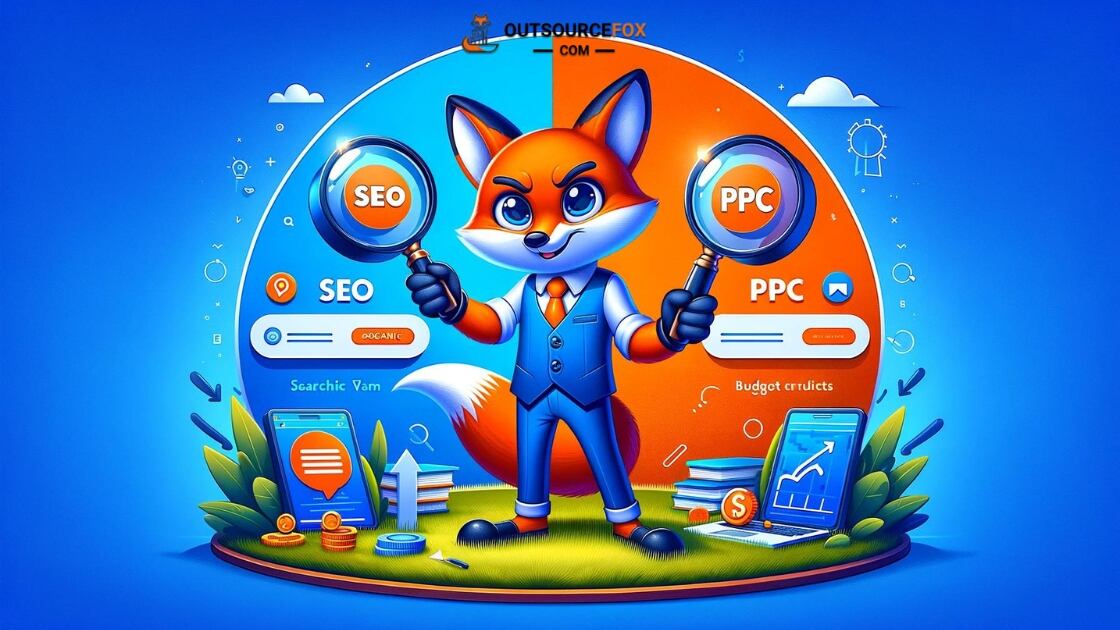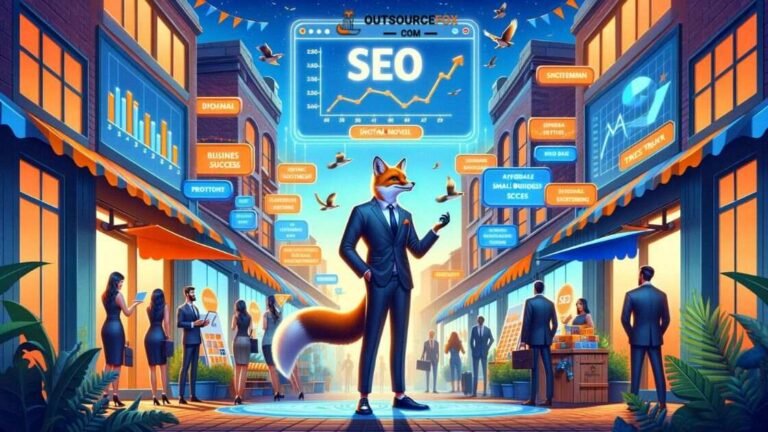
SEO vs PPC: Con, Pro, and Optimizing Your Search Marketing Strategy
Explore the world of search marketing with a deep dive into SEO and PPC. Understand the pros, cons, and key differences between these two powerful digital marketing strategies. Discover which method – SEO or PPC – can efficiently drive traffic to your website and optimize your search engine results.
In the realm of digital marketing, two terms often dominate the conversation: SEO (Search Engine Optimization) and PPC (Pay-Per-Click). Both strategies aim to drive traffic to your website by appearing at the top of search engine result pages, but they do so in different ways. SEO relies on organic traffic and requires technical expertise to optimize your site’s ranking, while PPC operates on a pay-per-click basis, driving traffic through paid search ads. Each method has its pros and cons, and understanding these can help you make an informed decision on which strategy to adopt for your business. In this article, we’ll explore the intricacies of SEO and PPC, highlighting their strengths and weaknesses to guide you in choosing the most effective search marketing method.
Understanding SEO and PPC
SEO, short for Search Engine Optimization, is a digital marketing strategy that aims to improve a website’s visibility in organic search engine results. It involves optimizing various elements of your website – from its content and architecture to its backlink profile – to rank higher on search engines like Google, Bing, and Yahoo. With SEO, the goal is to attract high-quality traffic to your site without paying for each click.
For instance, suppose you run a bakery in New York City. You’d want your website to appear when someone searches for “best bakery in New York City” on Google. To achieve this, you would need to optimize your site with relevant keywords, provide valuable content, ensure your site is easy to navigate, and more.
On the other hand, PPC or Pay-Per-Click is a type of online advertising where advertisers pay a fee each time their ad is clicked. These ads often appear at the top of search engine results, even above the organic listings. Google Ads is the most well-known PPC advertising platform, but there are others like Bing Ads and Facebook Ads.
Going back to our bakery example, if you were to use PPC, your ad might appear at the top of the search results for “best bakery in New York City”. Every time someone clicks on it, you pay a small fee.
The main difference between SEO and PPC lies in how traffic is generated. SEO focuses on earning traffic organically, while PPC aims to generate traffic through paid ads.
| SEO | PPC |
|---|---|
| Organic traffic | Paid traffic |
| Long-term results | Immediate results |
| Requires consistent effort | Requires budget control |
https://www.youtube.com/embed/-uYeaRGCiqcWhile both strategies can drive traffic to your site, they each have their strengths and weaknesses. But before we delve into those, let’s take a quick look at some interesting stats. According to the Search Engine Journal, SEO drives 1000%+ more traffic than organic social media, while PPC ads are one of the top three generators of on-page conversions.
Pros and Cons of SEO
SEO offers numerous benefits. First, it draws in organic traffic, which is not only free but also tends to have a higher engagement rate than paid traffic. SEO can also help establish your brand’s credibility. Websites that appear on the first page of search engine results are often perceived as more trustworthy.
Another advantage of SEO is its potential for long-term results. Once your website ranks high in search results, it can maintain that position for a significant amount of time, continuously attracting traffic. According to Backlinko, the first result on Google’s search results receives nearly 33% of the clicks.
Despite its advantages, SEO has its drawbacks. The most notable one is that it takes time to see results. It might take months of consistent optimization efforts before your website starts ranking high on search engine results.
SEO also requires technical know-how. From keyword research to site architecture optimization, SEO involves various complex processes that might be challenging for beginners.
Finally, SEO is not entirely free. While you don’t have to pay for clicks, you might need to invest in SEO tools or hire an SEO specialist to help with your efforts.
Pros and Cons of PPC
PPC offers immediate visibility. Unlike SEO, which takes time to yield results, PPC can drive traffic to your site as soon as your campaign is live. This makes it an excellent option for businesses looking for quick results.
Another benefit of PPC is the ability to target specific demographics. Platforms like Google Ads allow you to tailor your ads based on location, age, interests, and more. This means you can reach the right people at the right time with the right message.
Moreover, PPC offers measurable results. You can track the number of clicks, impressions, conversions, and more, giving you valuable insights into your campaign’s performance.
Despite its advantages, PPC also has its downsides. The most significant drawback is its cost. PPC campaigns require a budget, and the cost per click can add up quickly, especially for highly competitive keywords.
Managing a PPC campaign can also be challenging. It requires continuous monitoring and adjustments to ensure optimal performance. Plus, once you stop paying for ads, your visibility plummets.
Lastly, while PPC ads can drive traffic to your site, they may not always lead to high engagement or conversion rates. According to WordStream, the average click-through rate for PPC ads is only about 2%.

When to Use SEO vs. PPC
SEO is ideal for long-term strategies. If your goal is to establish a strong online presence and build brand credibility over time, SEO is the way to go. It’s also suitable for businesses with a limited budget but have the time to invest in developing high-quality content and optimizing their website.
In terms of industry, SEO is particularly beneficial for businesses in industries where customers take their time to research before making a purchase, such as real estate or high-end products.
On the other hand, PPC is perfect for short-term campaigns or immediate results. If you’re launching a new product, running a promotion, or trying to get quick visibility, PPC can provide the instant traffic boost you need.
PPC is also useful when you want to target a specific demographic or geographic location. For instance, if you’re a local business trying to reach people in your area, PPC allows you to target ads specifically for your locale.
How to Master Search Engine Marketing?
Search engine marketing is a digital marketing strategy that increases the visibility of websites in search engine results pages (SERPs) using both paid advertisements and organic SEO strategies. It involves bidding on keywords that your competitors are also targeting, running PPC ad campaigns, and optimizing your website for SEO.
SEO and PPC Work Together
While SEO efforts focus on earning free traffic through organic search results, PPC marketing involves paying for each click on your ads. Both strategies can be used together to increase your visibility in search results. For instance, while your SEO campaign works on improving your organic rankings, you can run a PPC campaign to immediately get your website in front of potential customers.
Choosing between SEO and PPC depends on your business needs and marketing budget. If you’re looking for long-term results and have time to wait, SEO may be a better option. However, if you need immediate results, PPC might be more suitable.
Keywords and Bidding
Keywords play a crucial role in both SEO and PPC. In SEO, you want to optimize your website with keywords relevant to your business and the queries your target audience is searching for. In PPC, you bid on the keywords you want your ads to show up for. The cost of PPC depends on how competitive the keywords are.
Local SEO and Off-Page SEO
Local SEO is a strategy that focuses on optimizing your online presence to attract more business from relevant local searches. Off-page SEO refers to all the activities you do outside of your website to raise your site’s ranking, like link building, social bookmarking, and content marketing.
On-Page SEO
On-page SEO refers to the practice of optimizing individual web pages to rank higher and earn more relevant traffic in search engines. This includes content optimization, meta-tag optimization, and keyword optimization.
PPC Ad Campaigns
PPC ad campaigns are a form of online advertising where the advertiser pays a fee each time one of their ads is clicked. It’s a way of buying visits to your site, rather than attempting to “earn” those visits organically.
SEO and PPC: A Combined Approach
Using SEO and PPC together can help you dominate the search engine results pages (SERPs), creating brand exposure and driving a high volume of traffic to your website. While SEO requires time to build and start delivering results, PPC can offer immediate visibility on the SERPs. Combining these strategies can lead to the best results for your business.
SEO Results
Measuring SEO results is crucial to understanding the success of your SEO strategy. This can include tracking organic traffic, keyword rankings, search engine visibility, and conversions. Tools like Google Search Console can help monitor SEO performance by tracking the position of keywords over time.
Marketing Campaigns and SEO Agency
A marketing campaign involves a series of activities aimed at promoting a product, service, or business. SEO agencies are specialized companies that help businesses improve their visibility online. They employ various SEO tactics and strategies, including keyword research, content creation, link building, and technical SEO optimization.

Competitor Keyword Bidding and Marketing Tactics
Understanding the keywords your competitors are bidding on can provide valuable insights for your SEO and PPC strategies. This information can help you identify potential keyword opportunities and refine your marketing tactics.
Benefits of SEO and PPC
SEO offers numerous benefits, including increased website visibility, higher search engine rankings, and more organic traffic. Unlike PPC, where you pay for each click on your ads, traffic from SEO is free. However, achieving high SEO results takes time and consistent effort.
On the other hand, PPC can provide immediate visibility on the search engine results pages (SERPs). Using PPC ads as part of your pay-per-click marketing strategy can help supplement your SEO efforts, especially when you’re waiting for your SEO results to improve.
SEO vs. PPC: Which is Better for My Business?
The decision between SEO and PPC depends on your business goals, budget, and timeline. While SEO is a long-term strategy that can provide lasting results, PPC can offer immediate visibility and quick wins. Both strategies have their pros and cons, and using them together can often yield the best results7.
Smart SEO and SEO Tactics
Smart SEO involves a combination of on-page and off-page strategies designed to improve your website’s visibility in search engines. This can include keyword optimization, content marketing, technical SEO, and link building. SEO doesn’t provide instant results, but over time, these tactics can significantly improve your site’s organic rankings.
Conclusion
Both SEO and PPC are crucial components of a comprehensive digital marketing strategy.
SEO, which stands for Search Engine Optimization, is a long-term strategy designed to improve organic search rankings and drive free traffic to your website. It involves optimizing your website’s content and design to make it more appealing to search engines. While results can take time, the benefits of SEO are long-lasting and can help establish your brand’s online presence.
On the other hand, PPC, or Pay-Per-Click, is a form of paid advertising where you bid on keywords to have your ads appear in the sponsored results of search engine queries. PPC can provide immediate visibility and is particularly useful for targeting specific demographics or promoting time-sensitive offers. However, the costs can add up, and it requires ongoing investment to maintain visibility.
While some businesses may rely heavily on PPC, using an SEO strategy alongside PPC can create a balanced approach that maximizes visibility and ROI. It’s not about choosing SEO or PPC, but rather understanding how they can complement each other.
For instance, SEO can help build your brand’s credibility and organic reach over time, whereas PPC can provide immediate results and target specific demographics or geographic regions. Therefore, many businesses use PPC platforms to supplement their SEO efforts, especially during the early stages of their SEO campaigns.
However, both strategies come with their own set of challenges. SEO requires continuous effort and can take months to see significant results. PPC, while providing immediate results, requires a budget for ad spend and a well-managed PPC account to ensure cost-effectiveness.
Ultimately, the decision between SEO and PPC will depend on your business goals, budget, and timeline. By understanding the pros and cons of SEO and PPC, you can make informed decisions about where to allocate your resources and how to strategically use these tools to achieve your digital marketing objectives.






